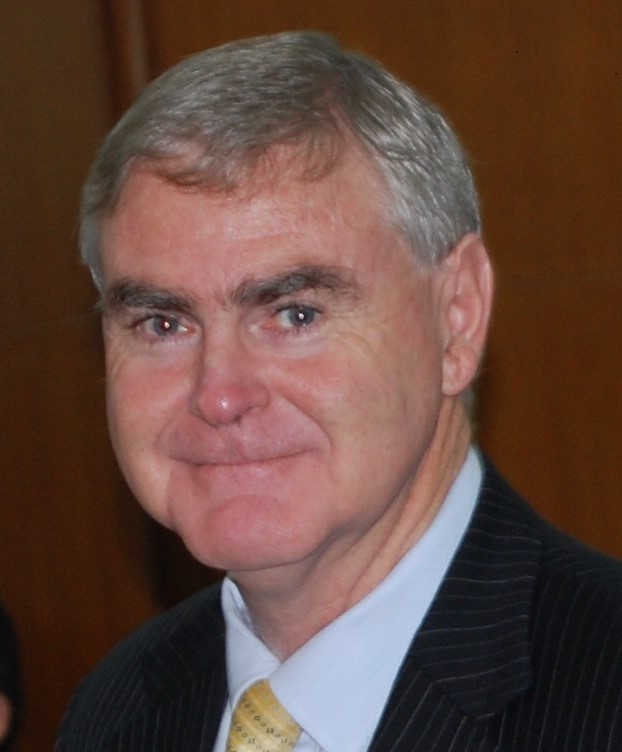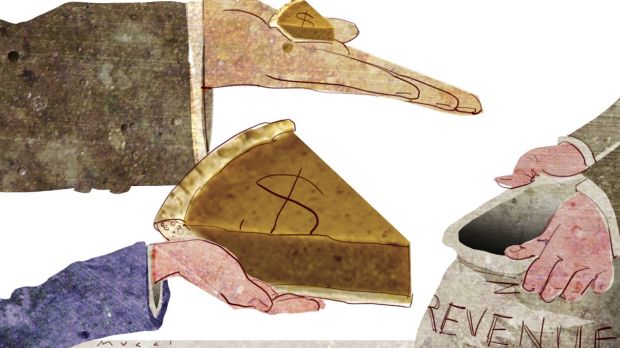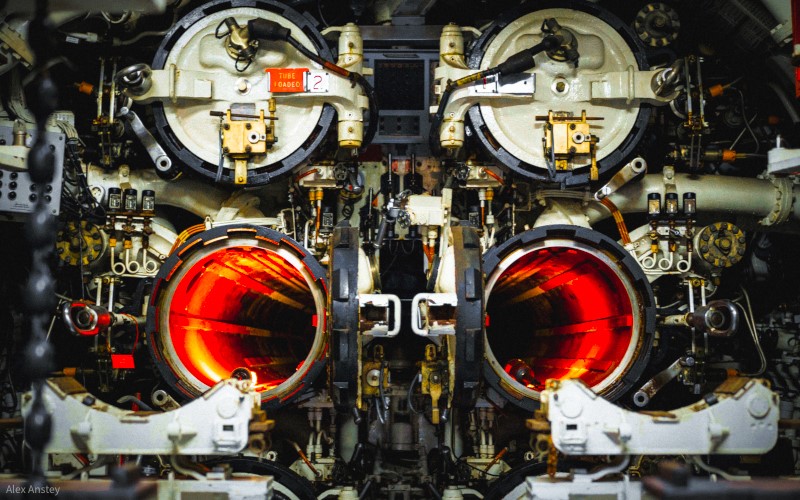The Best of 2020: By Michelle Fahy with Michael West Media
The arms company at the centre of a deadly criminal saga and numerous global corruption scandals, Naval Group, was selected by the Australian government to build our new fleet of submarines – a deal heralded as ‘one of the world’s most lucrative defence contracts‘. How did this happen? In this special investigation Michelle Fahy discovers significant gaps in anti-bribery and corruption measures on this massive procurement project. The message communicated far and wide is that our standards are lax; grey areas are tolerated; and we’ll bend the rules and look the other way.
A car packed with explosives drove into a bus of engineers in Karachi, Pakistan, in 2002, apparently in revenge for unpaid bribes, killing 15 people, including 11 employees of French shipbuilder DCN, now Naval Group.
The French investigation into the bombing – known as the Karachi Affair – began in 2002 and uncovered a web of corruption that by 2010 appeared to involve then French president Nicolas Sarkozy.
In June this year, 18 years later, a Paris court secured the first convictions in the case. Six men were found guilty of charges involving kickbacks on deals signed in 1994 for the sale of submarines to Pakistan and frigates to Saudi Arabia. They include three former French government officials and the former head of the International Division of Naval Group.
Investigations into arms trade corruption take years, often more than a decade, due to multiple countries being involved, layers of offshore shell companies hiding the money trail, and the senior people implicated. Court cases and convictions are rare.
The Karachi Affair resonates in Australia today because despite this high-profile and deadly criminal saga – and two other corruption scandals, in Taiwan and Malaysia, which also involved murder – the company at the centre of all three, Naval Group, was still selected by the Australian government in 2016 to build our new fleet of submarines. A deal heralded as “one of the world’s most lucrative defence contracts”. Naval Group is 62.25% owned by the French government and 35% by French multinational Thales (a global top 10 weapons-maker).
The French case continues. In January, the former French prime minister Edouard Balladur and his defence minister will stand trial. It is alleged the kickbacks helped fund the PM’s failed 1995 presidential bid. Both men deny any wrongdoing.
Meanwhile, in Australia, the submarine deal continues. In February last year, after two years of negotiations, the government signed a ‘strategic partnership agreement’ with Naval Group. The signing took place despite the emergence of two more investigations into Naval, including alleged corruption on a 2009 submarine deal with Brazil and a significant security breach where complete plans of the new Scorpène submarines Naval had provided to India were apparently leaked from within Naval.
Back in 1994, the payment of “commissions” (aka bribes) was legal in France, although kickbacks certainly were not. Commissions were outlawed in 2000 when France signed the OECD’s anti-bribery convention (Australia signed in 1999). President Jacques Chirac stopped the bribe payments to Pakistan, which is thought to have led to the bombing. But clearly the anti-bribery message didn’t get through as Naval’s Malaysian and Brazilian deals were signed after 2000.
Of the corruption generally in global trade, the arms trade accounts for an estimated 40%, even though it represents a fraction (<1%) of global trade. Combating the scourge of corruption in the arms trade requires much stronger action.
Strong anti-corruption measures essential
Vast amounts of Australian taxpayers’ money are being handed to military industrial companies, including Naval Group, in contracts. Yet the perennial lack of transparency in defence procurement, blanket secrecy surrounding Australian weapons exports, and a pervasive “culture of cosiness” between government and industry all continue.
“Big money attracts greedy people and firms,” wrote a 31-year veteran of financial crime investigation for the Australian Federal Police, Christopher Douglas, in 2018. “New defence programs… also attract foreign intelligence interest.” This is already occurring in Australia, and Douglas says there will be more than one country spying. He says there is a “symbiotic relationship” between successful intelligence gathering operations and corruption.
The corruption risk has only compounded since 2018. In June, the federal government further increased its projected military spend, from $195 billion to $270 billion.
Tufts University in America researches arms trade corruption. It says there is an assumption by governments, barely questioned in defence and security circles, “that maintaining an advanced domestic arms industry is an unquestioned good, and essential to national security and influence. In all too many cases, this goal has therefore been placed above anti-corruption objectives.” (Emphasis added.)
In Australia, developing a domestic arms industry is being accorded a high priority, but this should be accompanied by an increase in anti-corruption protections. The facts show nothing could be further from the truth.
‘Perfect bribe vehicles’
Many of the world’s corrupt arms deals involve submarines. “They are perfect bribe vehicles,” says Tufts University, because “submarines are hugely expensive, and not many countries actually need them.”
Australia is in a minority of countries that can argue it needs submarines. But do we need to spend quite so much money? Of the options available, the government selected the most risky one: the largest, most expensive, never-before-built, and thus completely untested, option.

Chris Douglas, now director of Malkara Consulting, has written a report questioning Australia’s anti-corruption due diligence on the Future Submarine program. He has since used Freedom of Information requests to try to find out more about Defence’s anti-corruption framework in the program and has uncovered what appear to be significant gaps, discussed below.
The international standard for anti-bribery measures is ISO 37001. It was introduced in 2016. Anyone serious about managing bribery and corruption requires a system that meets this international standard.
‘Come-from-behind victory’
It was called “a remarkable come-from-behind victory” for DCNS, as Naval Group was then known, as it beat the respected German bid and former prime minister Tony Abbott’s favoured Japanese bid, to win Australia’s huge submarine contract in April 2016.
How did DCNS do it? A history of the procurement is here, but we’ll probably never know the telling background details.
It surely didn’t hurt DCNS’s chances that, a year earlier, it hired Sean Costello, the chief of staff of former defence minister David Johnston as its new chief executive to run the bid. In November 2014, under pressure to build the submarines in Australia, Johnston had mounted a scathing attack on the Australian Submarine Corporation, including his infamous remark that he “wouldn’t trust ASC to build a canoe”, which ultimately led to his sacking.
Costello’s hiring by DCNS came just three months after he had quit the sacked Johnston’s office, full of knowledge about the submarine procurement process, the capabilities of each contender, and the issues of most concern to the government.
It was even reported Costello had toured one of the Japanese submarines with his former boss. As a former senior executive with Australian Submarine Corporation (ASC), and a submariner, Costello would have understood what he was viewing.
It is in Australia’s national interest to run transparent, rigorous tender processes for large procurement programs. Apart from preventing corruption, high ethical standards are essential or we risk degrading future procurements.
What reputable company will undertake the lengthy and costly process of preparing a serious bid if it cannot be confident the process will be an honest one?
Given the multiple corruption scandals already dogging the French company, did the appointment by DCNS of Costello in the midst of our own procurement process ring any alarm bells inside the government?
Quite the opposite. Costello told the ABC’s Lateline, “The probity of me working for DCNS was checked and agreed with the government and all stakeholders in the program.”
Costello didn’t elaborate on – or the ABC didn’t air – who in “government” signed off on it, nor who “all” the stakeholders were.
Another questionable move, not reported by the media generally, was the appointment of Rear Admiral Rowan Moffitt as head of EY’s defence team in Canberra from September 2014. Moffitt had been head of the Future Submarine program for the Department of Defence for about five years (since February 2009). It is unclear exactly when Moffitt retired from the Navy as his biography on the RAN’s website simply says “2014”.
In September 2013, Greg Sammut officially replaced Moffitt as Defence’s head of the Future Submarine program, but in October 2013 Moffitt was still in the media talking submarines as the “outgoing head” of the Future Submarine program.
Even if Moffitt had left the RAN on 1 January 2014, his September start with EY still fell within the 12-month period that is supposed to elapse before former military officers can take up such positions – a time frame that is already manifestly inadequate given the lengthy process of large-scale procurement programs.
Moffitt’s start date with EY coincided with the EY defence team starting work on a new contract for Defence for the Future Submarine program – the program Moffitt had presided over for five years. The initial value was published as $520,000 but that increased to $4.5 million over the 21-month contract. Austender records state the contract was for commercial services related to the Future Submarine competitive evaluation process.
Defence has stated (in Freedom of Information documents discussed below) that it appointed EY to perform “a comprehensive advisory role during the Future Submarine Program competitive evaluation process”.
Why did the Defence Department hire an accounting firm to advise it on the evaluation process? Why couldn’t Defence do the job itself? These questions are pertinent because EY hired Defence’s former head of the Future Submarine program to run the area providing the advice on the evaluation, indicating EY may have felt it lacked the necessary expertise. Did EY know it was getting the work? Is that why it hired Moffitt?
One of the contenders being evaluated by EY’s defence team was Naval Group. Sean Costello, in his former role as chief of staff to the defence minister, must surely have had numerous dealings with Moffitt in his former role – yet Moffitt’s team was now providing advice to Defence on Costello’s team’s bid.
How can this be? The biggest procurement in Australian defence history – a “megaproject by all international standards” in the words of the Defence Department – should never have been conducted in such murky territory.
Message is one of lax standards
The message communicated to the wider community – in Australia and internationally – is that our standards are lax. Grey areas are tolerated. And for certain preferred insiders we will bend the rules, blur the edges, and look the other way.
Months after the two appointments above had taken place, the new defence minister Kevin Andrews finally assembled an expert committee to oversee the probity of the ‘competitive evaluation process’ to ensure each contender (French, Japanese and German bids) was treated fairly and equitably. A 2017 Australian National Audit Office (ANAO) report confirmed this occurred.

But Chris Douglas says no one – from Defence or the ANAO – has ever mentioned specific anti-bribery and corruption (ABC) measures in relation to the Future Submarine program.
“If anti-bribery and corruption (ABC) risks are being considered, the ANAO report should say so. And the Department of Defence should outline what ABC measures it has implemented, particularly given the past activities of its new ‘partner’.”
The most recent ANAO report (2020) does not mention the anti-corruption standard nor whether Defence is implementing measures to meet the standard.
The ANAO also does not mention whether Defence undertook detailed and specific anti-corruption due diligence on Naval’s dubious history to ensure it was an appropriate long-term partner in the first place. Can we be sure the process by which Naval came to be included in the final shortlist of three was entirely above board?
“Words matter”
The head of the Future Submarine program described the program (p25) as “the most challenging acquisition program to be undertaken by Defence. It will be a mega-project by all international standards.”
On a project of this scale and significance, we shouldn’t have to be digging around trying to find out how, or whether, anti-bribery and corruption measures are in place. If ABC measures are in place and being pursued, Defence ought to be saying so, repeatedly and prominently, as a strong preventative measure.
As Douglas says: “Words matter.” Those who might be tempted to engage in corruption need to hear that these risks are being taken seriously, and are being managed.
Well-connected intermediary
It was revealed in February 2019 that Naval Group had “recently” hired David Gazard to help “improve a rocky relationship with the Defence Department and to secure a crucial Strategic Partnering Agreement (SPA)”.
A Liberal Party insider, David Gazard is well connected with the highest levels of the party. He was an adviser to John Howard, Peter Costello and Tony Abbott, in the lobbying business with Peter Costello for a time, and is also reportedly a member of prime minister Scott Morrison’s inner circle. In the 2010 federal election, Gazard stood for the Liberals in Eden-Monaro.
After two years of negotiations marked by tension and sometimes bad-tempered wrangling, in December 2018 the government announced that negotiations had concluded. In February 2019, the ‘contract of the century’ was signed.
Gazard and Naval Group declined to provide details on his role or the amount his lobbying firm, ECG Advisory Solutions, was paid.
Sole FoI document suppressed
Early this year, Chris Douglas lodged an Freedom of Information request with Defence about anti-corruption measures on the submarine program.
He asked for:

On 28 February, the Defence FoI officer replied:

Later in the letter, the FOI officer elaborated:

Says Douglas, “It is a disgrace.”
Douglas submitted another more general request to find out what, if any, ABC planning Defence had done. One document was identified, which Defence said was prepared by EY as part of its comprehensive advisory role (discussed above) and which included opinions and recommendations regarding the business affairs of Naval Group.
As the document mentioned ‘third parties’, Defence said it needed to consult with them before it could be released. Douglas outlined his concern that entities involved in corruption often hid their activities and identities by claiming information was commercially sensitive.
Nevertheless, Defence consulted the third parties. On 8 May, Defence told Douglas it was declining his request to release the document. Among other things, it said it had consulted EY, which had advised that the document was a very specific aspect of its comprehensive advisory role which, if read out of context, would not be in the public interest and could reasonably be expected to harm the professional reputation of EY.
Defence also said it was “aware of allegations in connection with then-DCNS. In relation to these allegations, there have been no formal adverse findings against Naval Group.” (Emphasis added.)
A month after this correspondence, the Paris court recorded the conviction against a former senior executive of then-DCN, now Naval Group, on charges relating to the kickback scandal.
As noted earlier, given the paucity of cases to ever reach court in this industry, it is alarming that the Defence Department seems to require a “formal adverse finding” before it will give weight to corruption concerns. When it comes to managing corruption risk, is the Defence Department saying it is content to set the lowest possible bar for its contractors to clear?

Government collusion
There is no better example of the collusion between governments and industry to ensure arms trade corruption cases rarely make it to court than the UK’s protection of BAE Systems, as described by Tufts University:
“The most glaring example… is UK Prime Minister Tony Blair’s 2006 decision to cancel a corruption investigation into the Al Yamamah arms sales to Saudi Arabia, to protect British arms giant BAE Systems and clear the way for further Saudi contracts.”
The closure of the investigation by the UK’s Serious Fraud Office was viewed as a capitulation and later deemed “unlawful”, an “abject surrender” and a “threat to the reputation of British justice” by the British High Court.
According to Douglas, ABC plans do not generally contain classified information and should be made public. His claim is supported by the fact that Defence has not said the document contains classified information and it has not been suppressed on national security grounds. Defence is using public interest arguments, some of which relate to protecting the interests of Naval and EY.
The Defence FOI officer said that while there was some benefit to the public in disclosing the document this was outweighed by the greater public benefit in withholding it. Moreover, she said, “disclosure of [certain] material would not increase public participation in the Defence process, nor would it increase scrutiny or discussion of Defence activities.” She also noted that the document’s release may adversely affect Naval Group and EY.
If the multinational, majority French-government-owned Naval Group’s business and professional affairs are such that they would or could be adversely affected by the release of a risk assessment document evaluating its suitability to undertake the largest defence procurement program in Australian history, we might wonder, why was it selected?
ABOUT THE AUTHOR

Michelle Fahy
Michelle has had a long career in writing and research, initially in the financial services sector producing plain language investor communications. For the last 10 years, she has been involved in research and campaigning for various organisations seeking to reduce warfare and militarism. An abiding interest has been the prevention of corruption via increased transparency and accountability. She is currently researching the links between current and former politicians, public servants and military personnel, and weapons-making corporations. You can contact Michelle by email: [email protected] and Twitter @FahyMichelle.



1 Pingback